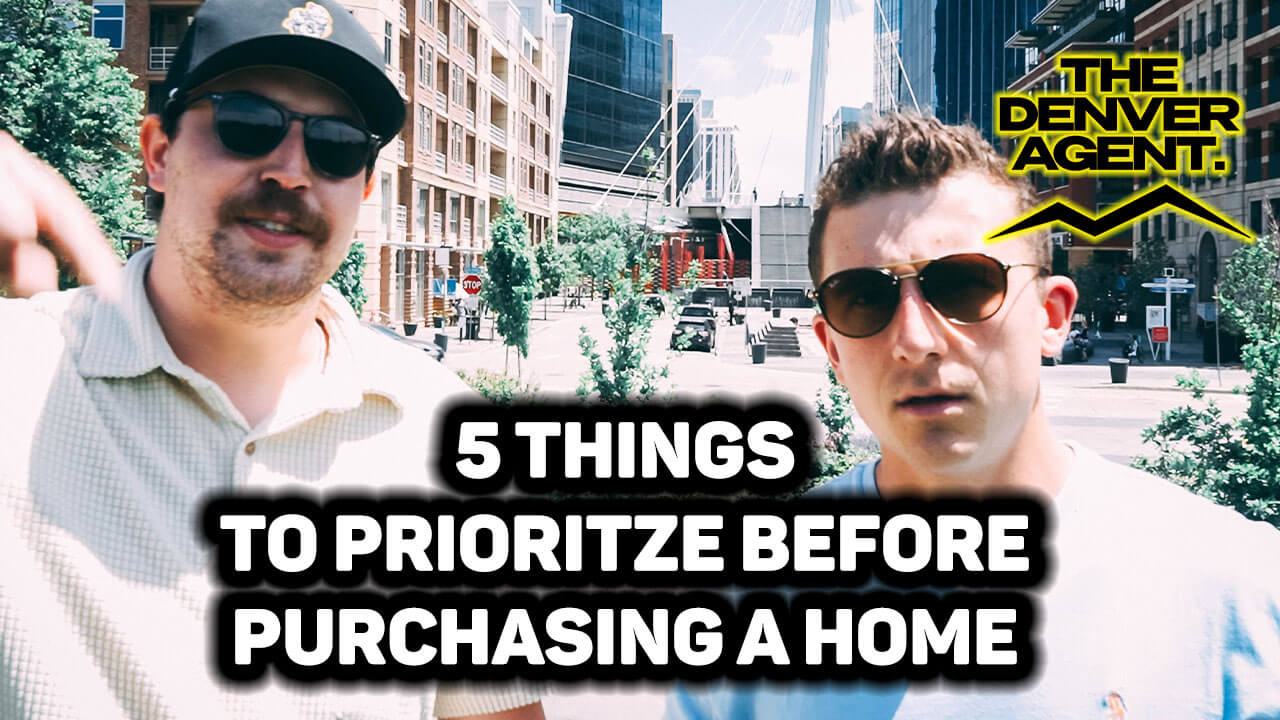Introduction to the Home Selling Process
Selling a home can be a daunting task. Still, with the right guidance and resources, it can turn into a smooth and fulfilling experience. Whether planning to sell your property or seek to enhance its value, being well-prepared and understanding your options is paramount.
Several factors come into play when deciding to sell your home, including finding the right real estate agent and selecting the most effective marketing strategy. The best approach will vary depending on your individual needs and objectives. Still, there are proven best practices to adhere to.
To achieve the best outcome, collaborate with a competent real estate professional who has extensive knowledge of your local area. This will save you time and money and ensure you obtain the highest possible return on your investment. The real estate industry is fiercely competitive, so choosing an agent with the appropriate background and expertise is crucial. A proficient agent will guide you through the entire process, from locating the ideal home to negotiating a successful offer.
Understanding the Home Selling Process in Colorado
First-time home sellers may find the numerous legal requirements in selling a property overwhelming. Understanding the process clearly can help reduce stress and ensure a smooth transaction.
The initial step in the home selling process in Colorado is to prepare your property for sale. This typically includes assessing your home’s condition and determining a reasonable asking price.
Setting a competitive asking price is essential whether you work with a real estate agent or sell the property on your own. By performing a comparative market analysis and examining recent sales in your area, you can establish a reasonable listing price for your home.
In Colorado, sellers must disclose any material defects that could influence a buyer’s purchase decision, such as structural problems or flood risks.
Preparing Your Home for Sale
To attract buyers and secure a favorable price for your home, properly preparing it for sale is crucial. This involves cleaning, decluttering, repairing, and staging your home to make it appealing to potential buyers.
- Cleaning: Start by thoroughly cleaning every area of your home, including the kitchen and bathrooms. Remove grime, soap scum, and food stains from countertops and appliances. Scrub floors and ensure walls are free of fingerprints and streaks. A clean home leaves a lasting impression on potential buyers.
- Decluttering: Clear away personal items that could prevent buyers from envisioning themselves living in your home. This includes family photos, artwork, and any belongings in poor condition or that must align with the overall decor. A clutter-free space allows buyers to focus on the property’s features.
- Repairing: Address minor and major issues that might influence a buyer’s decision to purchase your home. Fix clogged drains, broken or leaking faucets and showerheads, and replace cracked windows. Considering these issues before listing can significantly impact your final selling price.
Following these steps will create a welcoming and attractive environment that appeals to potential buyers, increasing your chances of a successful sale.
Finding a Real Estate Agent
Finding the right real estate agent to work with can seem never ending. You’re in luck, the step-by-step checklist below will help you in finding the right real estate agent!
- Determine Your Needs: Before beginning your search for a real estate agent, determine your specific needs and goals for selling your home in Colorado. Consider factors such as your desired timeframe for selling, any special features of your property, and your desired level of involvement in the process.
- Research Local Agents: Research Local Real Estate Agents Start by researching local real estate agents online. Look for agents who specialize in selling homes in your area and have a strong presence on various real estate platforms. Read client reviews, and take note of their experience, certifications, and specialties.
- Recommendations: Ask for Recommendations Ask friends, family, and colleagues who have recently sold homes in Colorado for recommendations of agents they had a positive experience with. This can provide valuable firsthand insight and help you create a shortlist of potential agents to contact.
- Interviews: Interview Potential Agents Once you have a shortlist of potential agents, schedule interviews with each. Prepare a list of questions to ask during the interview, such as their marketing strategies, commission rates, and communication style. Use these interviews to gauge the agent’s knowledge of the local market and their ability to meet your specific needs.
- Agents Track Record of Success: Review the Agent’s Track Record. Ask each potential agent for a list of recent sales they’ve completed in your area, along with client references. Contact the references to learn about their experience working with the agent and evaluate their track record in terms of sale prices, time on the market, and successful negotiations.
- Marketing Strategies: Evaluate Marketing Strategies. Inquire about each agent’s marketing strategies for selling homes. This should include their plans for online marketing, open houses, and any other tactics they use to attract potential buyers. Choose an agent with a comprehensive and modern approach to marketing that aligns with your expectations.
- Communication Expectations: Discuss Communication Expectations with the agent. Determine how often you would like to receive updates on the progress of your home sale and the preferred method of communication (phone, email, text, etc.). Make sure the agent is willing and able to meet your communication needs.
Following these steps will help you find the best real estate agent to work with.
Pricing Your Home
Determining the right price for your home is crucial when putting your property on the market. Overpricing your home may lead to a lack of buyer interest and a prolonged time on the market without any offers. On the other hand, underpricing your home could result in selling it for less than its true value.
To establish an accurate price for your home, it’s essential to gather information on recently sold comparable homes (comps) in your area. These comps should possess similar characteristics to your property, such as square footage, the number of bedrooms and bathrooms, overall condition, and location.
In addition to examining comps, it’s important to investigate the prices of withdrawn and expired properties in your neighborhood. By analyzing these properties’ initial listing and final sale prices, you can gain valuable insights into how other sellers priced their homes and avoid overpricing your own property. Studying these figures allows you to understand better what buyers in your neighborhood are willing to pay for similar homes.
After obtaining a reasonable estimate of your home’s value, the next step is to devise a pricing strategy. Consider using an online valuation tool, such as HomeLight’s home value estimator, to assist you in this process. This tool can provide an estimated value based on your property’s unique features and current market trends, helping you make an informed decision when pricing your home for sale.
Promoting Your Home
Effectively promoting your home is a vital aspect of the home-selling process. Whether working with an agent or going it alone, successful marketing is key to attracting potential buyers and securing the highest possible price.
There are numerous inventive and affordable methods for marketing your home, though they may demand some effort. Examples of these methods include:
- Use social media platforms like Facebook, Instagram, and Twitter to share your listing, photos, and virtual tours with your network.
- Hosting a virtual open house or creating a video walkthrough of your home to showcase its features and amenities.
- Distributing high-quality printed materials, such as brochures or postcards, in your neighborhood or at local businesses.
- Listing your home on popular real estate websites like Zillow, Trulia, and Realtor.com to increase visibility among potential buyers.
- Networking with local community groups and attending events where you can share information about your home with potential buyers.
Begin by consulting with a seasoned local real estate agent with a history of marketing homes in your area. These agents possess in-depth knowledge of the local market, and they can assist you in developing a strategy that draws prospective buyers to your listing.
It is also crucial to highlight your home’s most attractive features and amenities, such as state-of-the-art appliances, recent upgrades, or other distinguishing qualities. Remember to mention the unique vibe and notable aspects of your neighborhood, as this can help your home stand out from the competition and pique the interest of potential buyers.
Negotiating with Buyers
Negotiating with buyers is a crucial aspect of the home-selling process, as it can influence both the final sale price and the quality of the offers you receive. To ensure a more seamless negotiation experience, follow these key steps:
- Maintain a calm and neutral demeanor: It’s essential to stay composed during negotiations, even if it’s difficult. This approach will help you secure the most favorable deal for your home.
- Establish a BATNA early on: The best alternative to a negotiated agreement, or BATNA, is vital to have in place before negotiations begin. This backup plan ensures you’re prepared if an agreement isn’t reached with the buyer and prevents you from getting stuck in a negotiation loop.
- Evaluate your options: When considering your BATNA, consider whether reneging on your original contract or accepting a lower offer might be the better course of action. Weighing your options will help you make an informed decision.
- Understand the current market conditions: Before engaging with any buyers, familiarize yourself with the state of the real estate market in your neighborhood and city. Your real estate agent can provide valuable insights into market trends and help you determine where your home fits within the local market context.
By following these guidelines, you’ll be better equipped to navigate negotiations with buyers and maximize the potential success of your home sale.
Closing the Sale
The closing is the last step in the home-selling journey. Both parties – the seller and the buyer – exchange funds and paperwork to officially transfer the property’s ownership. As this stage can be both exhilarating and nerve-wracking, it is crucial to have a solid grasp of the process beforehand.
During the closing, you, your real estate agent, and the escrow company will collaborate to sign various documents detailing the sale terms. These documents include the purchase agreement, which outlines the specifics of the transaction, such as the procedures to follow and the financial obligations of both parties.
Additionally, your real estate agent should initiate a title search, which is an examination of public records to verify your legal property ownership. This step is vital to ensure that all potential liens or claims against the property are addressed and settled before you transfer the deed to the new buyer.
First-Time Home Sellers Guide Conclusion
The process of selling a home in Colorado can be intricate. Still, with the right resources and assistance, it can also be a seamless and successful experience. This comprehensive guide aims to support first-time home sellers and those with prior experience by helping you better understand the home selling process and instilling the confidence required for a successful sale. With the aid of a qualified real estate agent and a thorough comprehension of the process, you’ll be well-equipped to navigate the sale of your home easily.
To increase the likelihood of a smooth transaction and a stress-free experience, it’s essential to conduct thorough research and find an experienced Colorado real estate agent who is well-versed in the local market and familiar with the laws applicable to your sale. We wish you the best of luck on your home-selling journey!
If you’re interested in selling your home in Colorado, contact us to today to speak with a local and professional real estate agent!
How Long Does It Take to Sell a Home in Colorado?
The time it takes to sell a home in Colorado varies depending on market conditions and other factors like the price and condition of your home. It may only take a few weeks in a strong market, but it could take several months in a slow market.
What are the Benefits of Being a First-Time Home Seller in Colorado?
As a first-time home seller in Colorado, you may enjoy some advantages, including:
Less emotional attachment: As a first-time seller, you might have little feelings about the property, making it easier to negotiate and decide based on market conditions.
Greater negotiating power: If your property is in high demand, you may be better positioned to negotiate a higher price.
No previous sales history: Potential buyers might see you as more flexible and open to negotiation if you have not sold a property before.
No past real estate mistakes: As a first-time seller, you likely haven’t made any errors in previous real estate transactions, giving you a clean slate and more peace of mind.
Opportunity to learn: Selling your first home can be a learning experience, allowing you to gain knowledge and insights into the Colorado real estate market and the home-selling process.
What Should I Consider Before Selling My Colorado Home?
Before selling your Colorado home, consider the following questions:
What is your motivation for selling? – Understanding your reasons can help you make informed decisions and set realistic expectations.
What is your desired selling price? – To establish a target price, consider current market conditions and recent sales of similar homes in your area.
Are you willing to make repairs or renovations? – Consider the improvements you may need to make to attract potential buyers and increase your home’s value.
How will you market your home? – Determine the most effective methods for advertising and promoting your property, such as hiring a Colorado real estate agent, listing your home online, or hosting open houses.
What terms of sale are you willing to accept? – Consider factors like the closing date, contingencies, and the buyer’s down payment amount.
How do you plan to handle negotiations and closing? – Decide whether a real estate agent or a lawyer will handle the negotiations and closing, and be aware of the fees and expenses involved.
Are you familiar with Colorado’s real estate laws and regulations? – Familiarize yourself with local real estate laws and regulations, such as tax rules, zoning laws, and other legal requirements.
By considering these questions and being well-informed, you can make selling your Colorado home smoother and more successful.








My brother recommended I would possibly like this website.
He was entirely right. This publish actually made my day.
You can not consider just how much time I had spent for this info!
Thanks!